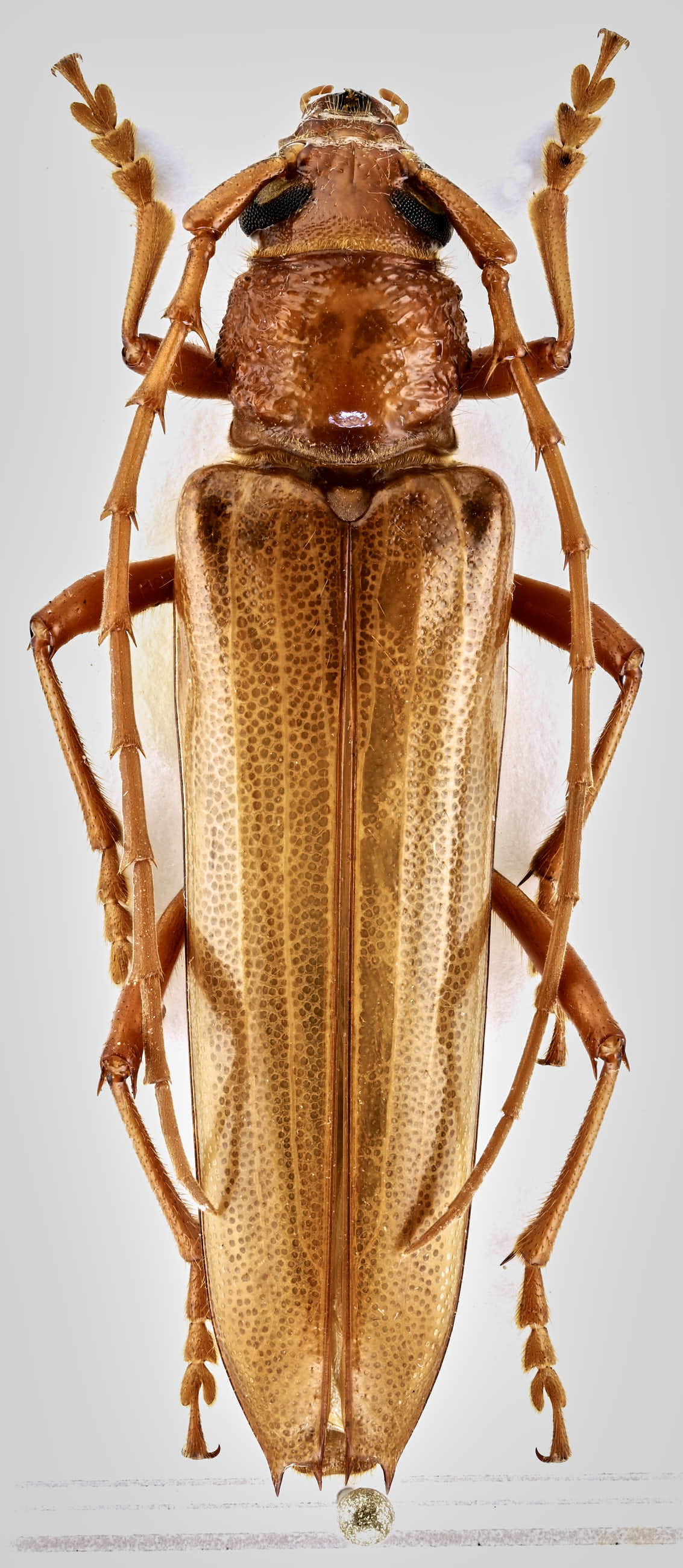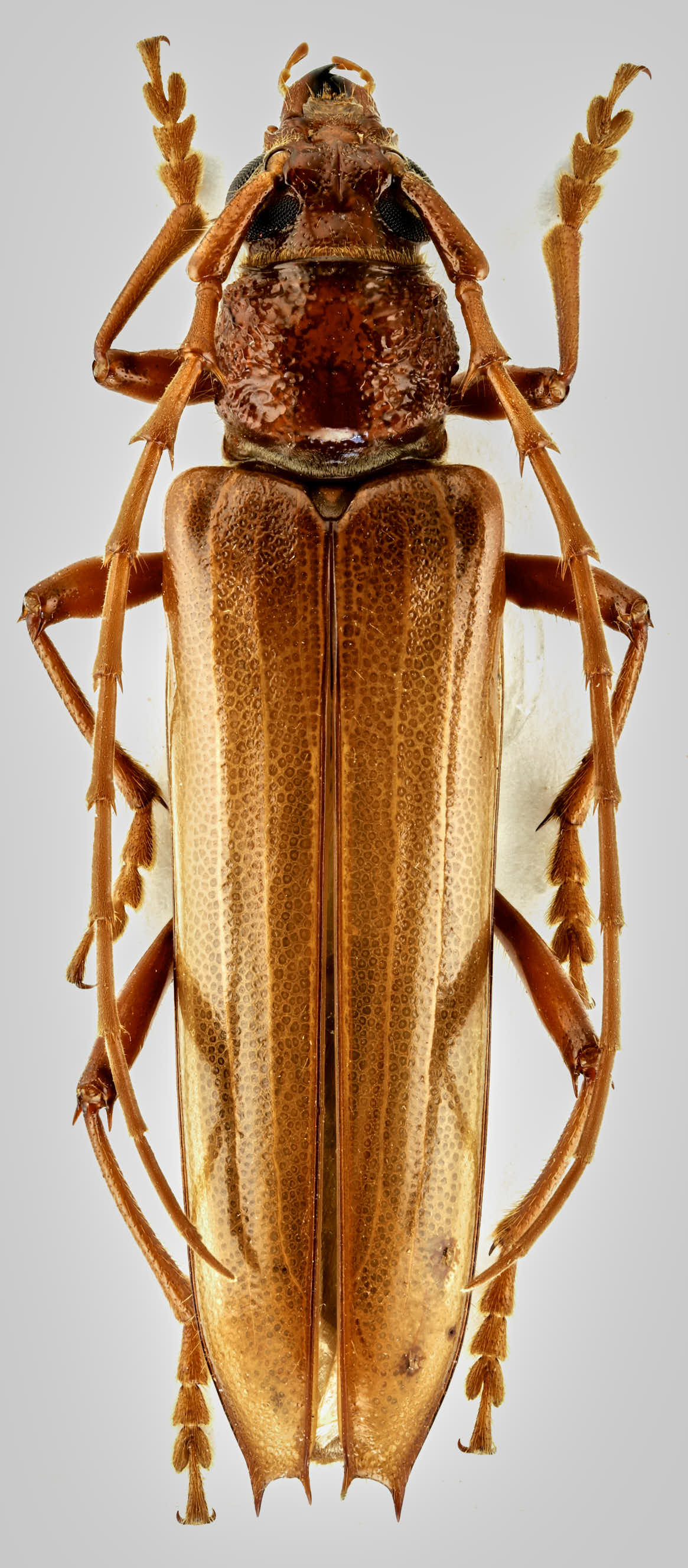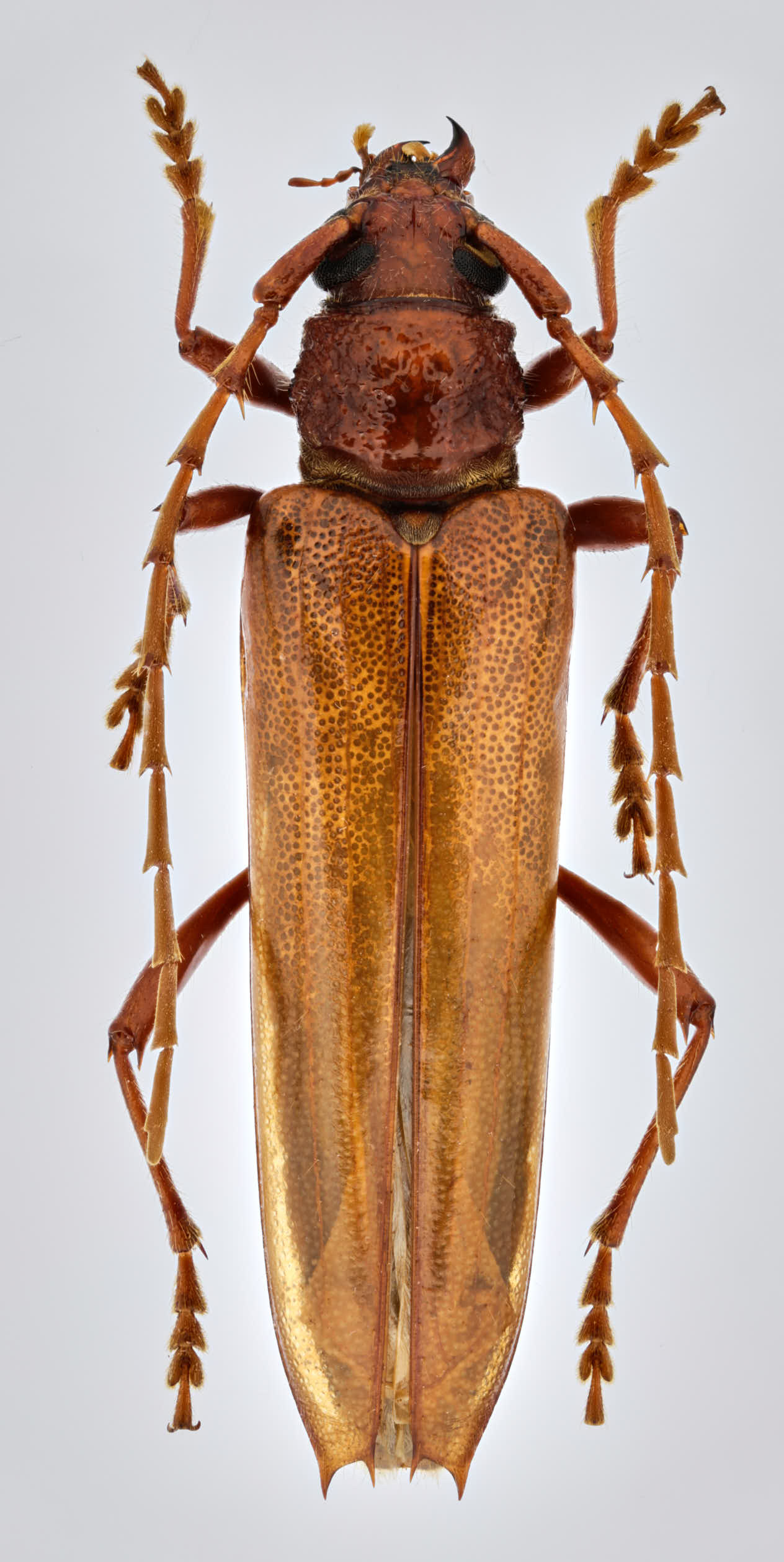| Author |
 Topic Topic  |
|
|
Gerard
Scientific Collaborator
    
France
5300 Posts |
 Posted - 31/05/2016 : 14:46:31 Posted - 31/05/2016 : 14:46:31



|

212.08 KB
Costa Rica, Santa Clara River, taille 29 mm
Bonjour, je n'ai aucune idée pour cette bête.
Merci de votre aide.  |
Edited by - Gerard on 31/05/2016 16:14:07 |
|
|
dryobius
Member Rosenbergia
   
USA
1887 Posts |
 Posted - 31/05/2016 : 15:33:22 Posted - 31/05/2016 : 15:33:22



|
| Atylostagma polita White 1853 |
 |
|
|
Gerard
Scientific Collaborator
    
France
5300 Posts |
 Posted - 31/05/2016 : 16:14:36 Posted - 31/05/2016 : 16:14:36



|
Merci beaucoup.  |
 |
|
|
Francesco
Forum Admin
    
Luxembourg
9454 Posts |
 Posted - 21/03/2019 : 18:22:05 Posted - 21/03/2019 : 18:22:05




|
| Correctly, Atylostagma politum White 1853. |
 |
|
|
SDevesa
Member Purpuricenus
 
Spain
272 Posts |
 Posted - 27/01/2021 : 19:04:23 Posted - 27/01/2021 : 19:04:23



|
I'm a bit confused.
Answer in other specimen: Atylostagma glabrum (Atylostagma has gender neuter) has spines at both sides of the antennal joints, while politum has spines only at the inner side.
I see spines in both sides, so it should be A. glabrum. Do I am mistake?
|
 |
|
|
Gerard
Scientific Collaborator
    
France
5300 Posts |
 Posted - 27/01/2021 : 21:03:44 Posted - 27/01/2021 : 21:03:44



|
Hello Sergio, you've seen it. There are thorns on either side. |
 |
|
|
SDevesa
Member Purpuricenus
 
Spain
272 Posts |
 Posted - 28/01/2021 : 11:20:09 Posted - 28/01/2021 : 11:20:09



|
Thanks Gerard,
So, your specimen is A. glabrum and not polita/politum.
I have 3 specimens in my collection. All have spines/thorns in both sides of the antennomeres.
So, all are A. glabrum. Do I'm right?

306.35 KB

322.21 KB

239.93 KB |
 |
|
|
dryobius
Member Rosenbergia
   
USA
1887 Posts |
 Posted - 28/01/2021 : 14:30:29 Posted - 28/01/2021 : 14:30:29



|
The separation of the two species of Atylostagma is sometimes problematic.
My specimens of politum generally have a greater length/width ratio for the elytra and the pronotum tends to be somewhat less punctate and more smooth in the basal center region. A. glabrum seems to have less distinct elytral costae and is maybe a little bit paler in color, as well as being more uniformly punctate on the dorsum of the pronotum.
I would say that Sergio's three specimens are politum. Gerard's specimen "might" be glabrum or politum.
A. politum is very common in Mexico and occurs all the way down to Panama. Very common and widespread species can be expected to have differences. A. glabrum is not common, even in Arizona where it was described from.
The ranges of the "two" species overlap in Mexico and perhaps much farther south.
Spines on the antennal segments may be less than 100% reliable since populations of Atylostgma seem to be isolated by geography.
|
 |
|
|
SDevesa
Member Purpuricenus
 
Spain
272 Posts |
 Posted - 28/01/2021 : 17:40:43 Posted - 28/01/2021 : 17:40:43



|
Thanks Dan,
my first two specimens were collected by me in Nicaragua and the third in Quintana Roo.
So, I will name as politum. |
 |
|
| |
 Topic Topic  |
|


